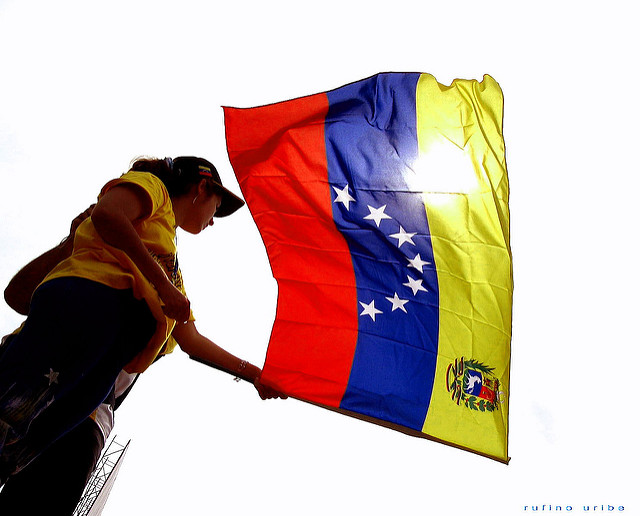Increasingly isolated and lost in his labyrinth. Little less than seven and a half million Venezuelans took part in the plebiscite, the popular consultation. This turned out to be another strong blow against Venezuelan President Nicolas Maduro. His government threatens, detains, represses and yet fails to contain the protests.
These have become an unstoppable tsunami unveiling the inconsistency of a regime with a deep authoritarian vocation and an evident inability to solve the problems of the Country; the fragility of a useless government that has played with the hopes of the people. The figures released by the Commission of Guarantors, made up of the Rectors of the most prestigious universities in the country, go beyond reasonable expectations, considering the organizational difficulties, the threats of the «colectivos’» [Translator’s note: colectivos are criminal bands armed and financed by the present Venezuelan regime] and the reduced number of «Sovereign points» [T.N.: name given to the polling places by the plebiscite organizers]: just 2300, seven times less than the nearly 15 thousand polling places with which the National Electoral Council is accustomed to covering the national territory whenever it has to organize elections, be they political or administrative.
The National Constituent Assembly is the last ace up his sleeve that President Maduro wants to use to stay in power. That is why he promotes it against wind and tide, and uses all means at his disposal to impose it against the will of the majority. He considers it essential to silence the uncomfortable Public Powers (the National Assembly and the Attorney General’s Office), to appease dissidents who grow hastily in the ranks of the «Chavista» militancy, and to corner the Opposition.
We say that he assumes that the constituent will allow him, as in a recent past, to govern without obstacles, with dictatorial powers disguised as «protagonist democracy».
The proposal by the opposition for a popular consultation however has mobilized millions of people throughout Venezuela and almost 700,000 Venezuelans in 559 cities around the world, mirroring the massive exodus of a society that has become liquid and has sought, even in the remotest corners of the globe, a space in which to live. Venezuelans abroad have shown once again that, however far away, they are still rooted in the country in which they were born and grew up, where they want to live.
In Venezuela, the participation of the people in the plebiscite has not been limited to the middle-class neighborhoods. It also occurred in the lower-income neighborhoods, despite the threats of violent «groups» – the motorcycle packs that, unpunished, intimidate with weapons those who oppose the government —in Catia, a popular zone of Caracas, they murdered a woman, wounded three other people, and violently beat a journalist.
From very early in the morning, Venezuelans formed their lines neatly in front of the «sovereign points». They did so on a day regarding which the National Electoral Council had fixed, in parallel, its rehearsal for the voting the government summoned for July the 30th, a date when, unless changes occur, the «constituents» must be chosen; a rehearsal to which the president of the Republic summoned the people through countless radio and television chain transmissions.
The Opposition has repeatedly affirmed that the holding of a National Constituent Assembly represents the death of Democracy, of the right to dissent, of the freedom of expression. Something that can surprise no one, considering that, in proposing the National Constituent Assembly, the Government has assured that, through it, it will destroy its opponents and demolish the opposition. At no time has the government hidden its aspirations to establish a government without dissidence; in short, to impose the unique thought that dictatorships are so fond of.
The triumph of the popular consultation puts to the test the government’s objectives. The debate is no longer about the legality of the Opposition’s initiative, as the National Electoral Council and the government wanted from the outset that same be perceived. The discussion now turns on the political value of the plebiscite and its effects at national and international levels. The popular consultation has highlighted the mobilization capacity of the National Assembly and of the Mesa de Unidad Democrática (Table of Democratic Unity.) At the same time, it showed that when the population comes out massively to the street and stays united, the colectivos are unable to impose themselves and to spread fear. They can spill blood on the streets, but they can no longer stop the river of people who protest daily and who, on this occasion, participated massively in the popular consultation. The result of this vote has surpassed all expectations, and is a blow to the government that thought of solving differences by repressing and imprisoning its opponents.
Many are now the questions of the day-after. Will the results of the plebiscite succeed in stopping the National Constituent Assembly? We will have to wait. However, there is no doubt that a new scenario opens up, forcing a different analysis on the government. Can the plebiscite be a detonator for the beginning of a new stage in the struggle for Venezuela to not lose democracy definitively? Can the popular consultation, and the deep gap opened by dissent within “Chavismo”, now turn into the beginning of a negotiation to advance towards a transitional government that allows retracing paths and begining rebuilding the future of the country? Will the government accept the new reality, or will it continue to try and impose itself even if it has to place the Army out on the streets, outlaw political parties, imprison political leaders, journalists and all those who think differently, and censor the few mass media that have refused to be submissive spokesmen of the political propaganda of power?
The truth is that, in Venezuela and abroad, Venezuelans have demonstrated once again their profoundly democratic vocation, their desire to rebuild their country with a legitimately elected government, where speaking again with hope about the future be possible.
Photo Credits: Rufino Uribe


